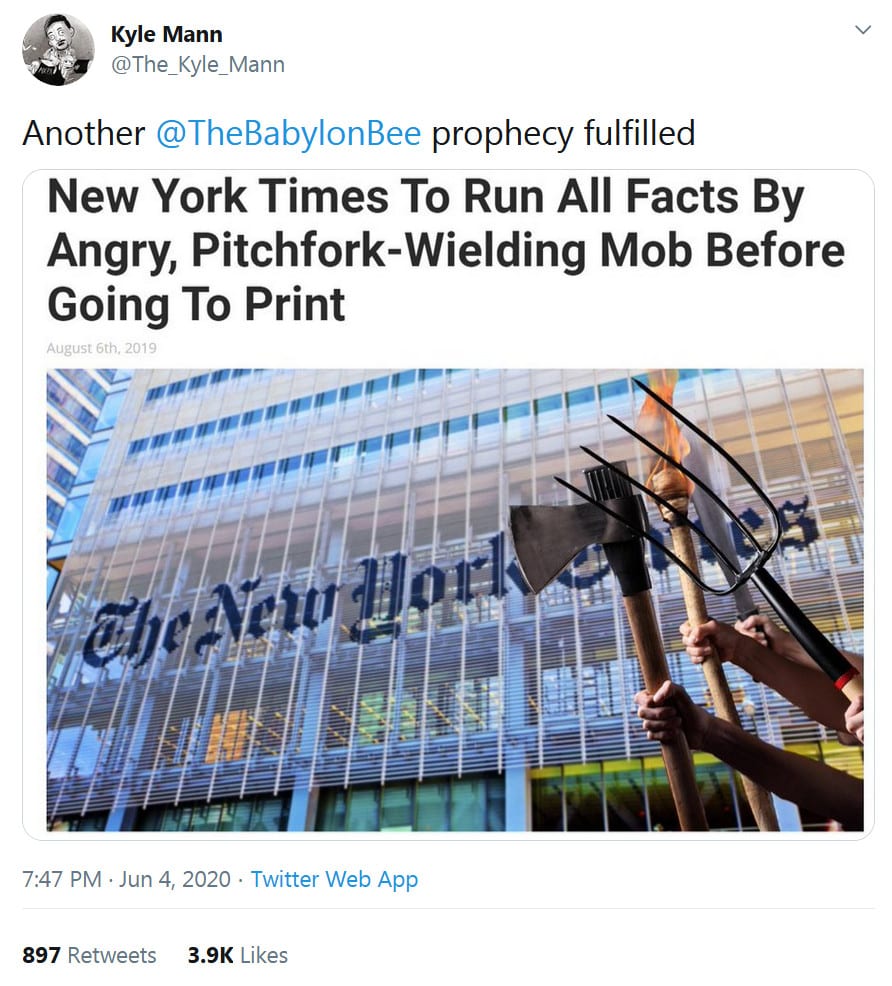NEW YORK TIMES REPORTER DONALD MCNEIL SAYS PAPER TWISTED HIS ARM INTO RESIGNING. Times executive editor Dean Baquet said privately McNeil wasn’t a racist.
The Medium post also suggests that the New York Times union was unwilling to defend McNeil. The union “was deeply split over my case,” McNeil said, so “I decided I needed my own lawyer.” As the Washington Free Beacon reported last month, the union even exploited U.S. labor law to up the pressure on McNeil.
While McNeil said he still considers Baquet a friend, he had harsher words for Charlotte Behrendt, the human resources official who oversaw the investigation into his conduct. “She makes the Times newsroom more like North Korea every day,” he said in a follow-up Medium post, quoting an email he had sent to a friend.
Behrendt herself had used the n-word while grilling McNeil about the Peru incident. “I flinched a little as she said it,” McNeil said, recounting a meeting at which he and Bill Baker, the New York Times union chair, were present. “[M]ostly because Bill, who was sitting next to me, is black.”
Neither Baquet nor Behrendt responded to requests for comment.
McNeil’s Medium articles (which I assume are the first draft of a memoir in progress) are well worth your time – they read like watching a car crash happen in very slow motion, including this moment:
As I remember it, Dean started off by saying “Donald, you had a great year — you really owned the story of the pandemic….”
As soon as I realized he was talking in the past tense, I became tense and started taking notes.
“Donald, I know you,” he went on. “I know you’re not a racist. We’re going ahead with your Pulitzer. We’re writing to the board telling them we looked into this two years ago.”
“But Donald, you’ve lost the newsroom. People are hurt. People are saying they won’t work with you because you didn’t apologize.”
“I did write an apology,” I said. “I sent it to you Friday night. I sent another paragraph on Saturday morning. Didn’t you get it?”
Dean didn’t answer.
“I saw it,” Carolyn said.
“But Donald,” Dean said, “you’ve lost the newsroom. A lot of your colleagues are hurt. A lot of them won’t work with you. Thank you for writing the apology. But we’d like you to consider adding to it that you’re leaving.”
“WHAT?” I said loudly. “ARE YOU KIDDING? You want me to leave after 40-plus years? Over this? You know this is bullshit. You know you looked into it and I didn’t do the things they said I did, I wasn’t some crazy racist, I was just answering the kids’ questions.”
“Donald, you’ve lost the newsroom. People won’t work with you.”
“What are you talking about?” I said. “Since when do we get to choose who we work with?”
“Donald, you’ve had a great year, you’re still up for a Pulitzer.”
The problem of course wasn’t that McNeil “lost the newsroom” suddenly – Baquet never had control over its staffers during his run as editor – which some are speculating will end next year.
McNeil’s Medium articles are also a vivid reminder of who America’s true Newspaper of Record is, these days:

